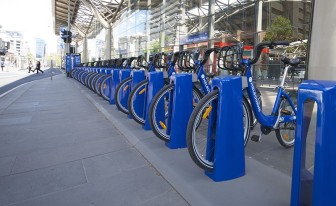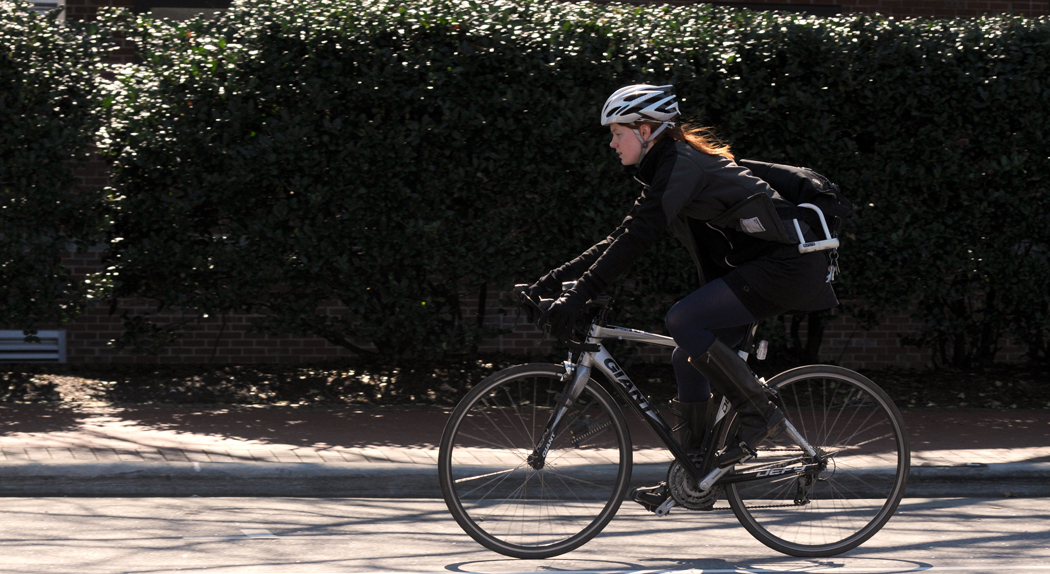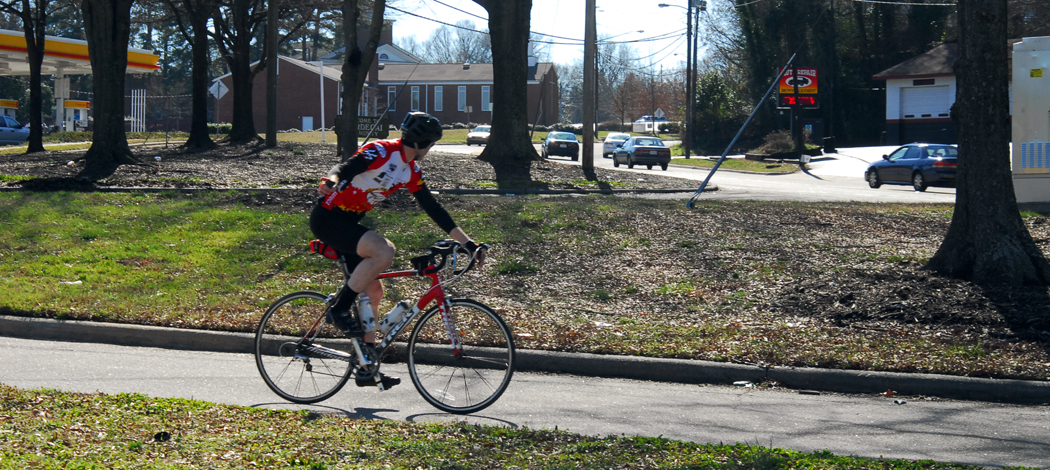In the following weeks, councilors will decide the fate of a bike share program that aims to facilitate access to transit and enhance the bike culture in Raleigh.

Wikimedia Commons
A bike station in Melbourne, Australia
“This is a terrific opportunity to accomplish our Comprehensive Plan goals,” councilor Russ Stephenson said at the time.
80 Percent of Capital Costs of Program to be Covered by Grant
The bike share program has been in the works for the past two years. It started with a feasibility report to analyze whether such a program would be suitable for Raleigh. The report, which was published in the spring of 2014, looked at peer cities such as Washington D.C. and Charlotte to see how those cities ran their bike share programs.
There are two costs — the initial capital funding, which will be used to construct the system, and then the ongoing operating costs. 80 percent of the capital costs are covered by a grant through the North Carolina Capital Area Metropolitan Planning Organization. That leaves a local match of around $400,000 for the remainder of the capital costs.
In the March 17 work session, councilors were given scenarios for how to handle the operating costs once the bike stations are constructed. Other cities had done so through a mix of public-private partnerships, with the addition of sponsors paying money to advertise on the bikes or stations. Revenue from the bike rentals are only projected to cover one-third of the operating costs.
Bike Share Program would Increase Access to Transit
Eric Lamb, the transportation planning office manager for the city, said that the benefit of having a bike share program outweighed the challenge posed by the lack of rental revenue.
The bike share program would improve access to transit as well as extend the range of travel when getting off a bus. He talked about the “last mile experience” where individuals would have to hike to their destination after getting off a bus. With the bikes, that journey would be much quicker.
“The one thing I’ll point out is that there has been some conversation about bicycle tourism,” Lamb said.
As stated in the March 17 work session, memberships would be staggered based on length of use and other special categories. The first 30 minutes of bike rental would be free. Every additional half-hour is $4, or $2 for students. Annual memberships would cost $80 for the general public and $50 for students, and a 24-hour rental is $8.

Karen Tam
Biking on Hillsborough Street
In Monday’s budget work session, councilors Gaylord and Stephenson spoke out in favor of the bike share program.
“This is an opportunity to move forward in a way to help transportation and economic development,” Stephenson said.
Lamb said the bike share program would be another step to making Raleigh a bicycle friendly activity — a process that started in 2009 with the bicycle plan and has led to the adding of bike lanes along Hillsborough Street and Wilmington Street.
“The bike share system fits very nicely in that mindset,” Lamb said.
